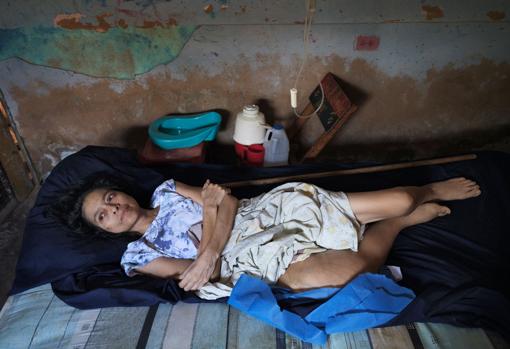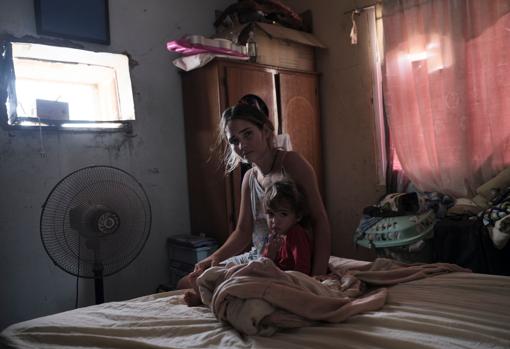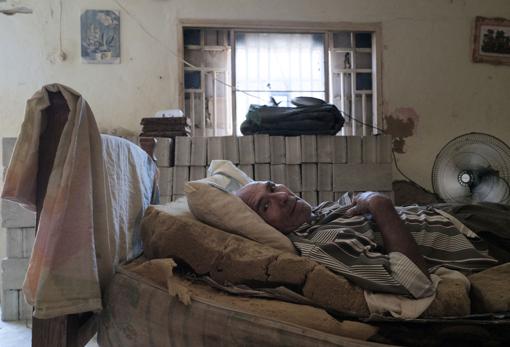Caracas
Updated:
Save
Traffic returns to the streets of Venezuelan cities. The long queues of cars waiting to be able to refuel due to lack of fuel disappeared. New canteens of premium products have opened in cities like Caracas, Valencia or Maracaibo and the images of supermarkets without supplies are already part of the recent past of Venezuela. The dollar is now the official currency in an underground consented by the Government that governs the day to day of Venezuelans, and unlike previous years, now the sense of the Venezuelan exodus took the opposite course and a large part of those who fled from Venezuela In search of a better future, they return to the new expectations of economic growth and stability that the Caribbean country is experiencing.
“The Rodríguez brothers and those around Maduro realized that in order to survive in power they had to stop screwing over businessmen and people who want to live on this land. In addition, now with the reopening of talks with the US and the lifting of sanctions, which seems to be a reality sooner rather than later, Venezuela offers opportunities to make money and do business as has always been the case in this country,” says an important businessman. Venezuelan who asks to remain anonymous as it is still risky to speak publicly about political or other issues in Venezuela.
However, behind this new mantle of economic prosperity and recovery of a certain normality in the country hides the dramatic reality of the children of Chávez. The children of Chávez are that electorate that saw in the figure of Hugo Chávez Frías a symbol of hope to get out of poverty, hunger and social oblivion in which they lived and in which they still continue today. “Here things are getting worse every day. In the neighborhood, people are dying for a lack of health because in the hospital they have nothing to treat them and the sick person does not have the money to be able to pay for the supplies so that they can be treated in the hospital. secures Caroline loyal, a social leader who in the past was a member of the Chavista party, but who now lives to help people. For six years, she has distributed more than 250 lunches a week and is in charge of helping the sick in the neighborhoods of Santa Rosa de Aguas and Milagros de Arriba. Today in Venezuela you can get any medicine, just go into any pharmacy or observe the reopening of the punished Farmatodo pharmaceutical establishments and one observes that nothing is missing. It is having or not having money that makes the difference between living or dying in Venezuela. “The revolution forgot about those who do not have”, says Carolina and it is enough to visit to compare a public hospital and then a private one in today’s Venezuela, to realize the great social abyss that is experienced today in this new economic ‘boom’ Bolivarian who lives in the country and who forgot the children of Chávez.
sentenced to die
Inside a house in the neighborhood of Santa Rosa de Aguas, sitting in the shadows, a young woman cries in silence. Her name is Stefani Ríos. She is 25 years old and her face marked by deep dark circles, she hides a classic beauty from another time more typical of a protagonist of a painting by Edouard Manet. Her look is the living representation of the anguish of a person who knows that she is doomed to die. Inside her there is still the dead fetus of her baby of more than twelve weeks five days ago and she cannot expel it. She urgently needs a curettage and antibiotics to stop the infection that is killing her, but she does not have the thirty dollars necessary to buy them along with the medical supplies that the doctors require to admit her. The hospital does not have medicines or surgical material to treat her.
The The country’s public hospital system is in total collapse. The Venezuelan Medical Federation (FMV) assures that the situation in the country presents a technical closure in more than 95% due to the abandonment of its facilities, lack of maintenance, lack of medical equipment, work tools, surveillance, electricity, water, elevators, supplies and medicines among many other needs. However, the government’s response to this situation was to begin a fight against what it called “hospital mafias” and, as a first measure, ordered the incorporation of secret inspectors in the health centers to hunt down the workers who, it says, steal the supplies and medicines. As a result of this policy, people without resources die at home due to the impossibility of being treated in a public hospital in Venezuela.
Children, the most affected: two years and severe malnutrition
Ana Orozco, 22 years old, along with his third son Alexander Esteban Morán Orozco, 2 years old, who suffers from severe malnutrition. They live thanks to the collection and sale of scrap metal, a risky profession these days in today’s Venezuela because it is a sector controlled by the local mafias that control Zulia. Regardless of the economic improvement that the country is experiencing, the dollarization of its economy has made it impossible for the vulnerable population to have access to basic products.
Bedridden by a tumor
Manuela Mora, 52 years old, She has been bedridden for a year hoping to get the money to buy the medicines and medical supplies that will allow her to treat her RT tumor located on her right leg in a hospital. In Venezuela, where despite the economic improvement that the country is experiencing, the dollarization of its economy has turned medicines into a luxury good. A large percentage of public hospitals suffer from a general shortage of basic medicines and medical supplies.

Life in danger for not having 30 dollars
Stefani Rios, 23 years old, poses with the youngest of his three children inside the house of his in-laws in Santa Rosa de Aguas. Stefani she suffered an abortion on June 8, 2022. Since then she has not been able to expel the fetus for more than twelve weeks, which is causing an internal infection that puts her life in danger. She needs to have an emergency curettage performed, but, however, it is impossible for her since she does not have the 30 dollars necessary to be able to buy the necessary medications.

Without being able to move because of a disease that is relatively easy to cure… with money
Gilberto Cardoso, 74 years old, He has been bedridden for nearly a year due to an inguinal hernia that cannot be treated in the public state hospitals of Zulia because he does not have the money to buy the treatment or the surgical materials necessary for the intervention since the hospitals are completely out of stock In Venezuela, where despite the economic improvement that the country is experiencing, the dollarization of its economy has turned medicines into a luxury good. Political wars still maintain the country’s state public hospitals with a general shortage of basic medicines and medical supplies. The dollar is now the official currency in a clandestine state consented to by the government that governs the day-to-day life of Venezuelans. Only people who have dollars can buy the medicines and the necessary material so that the hospital can treat them and save their lives.

www.abc.es
George is Digismak’s reported cum editor with 13 years of experience in Journalism